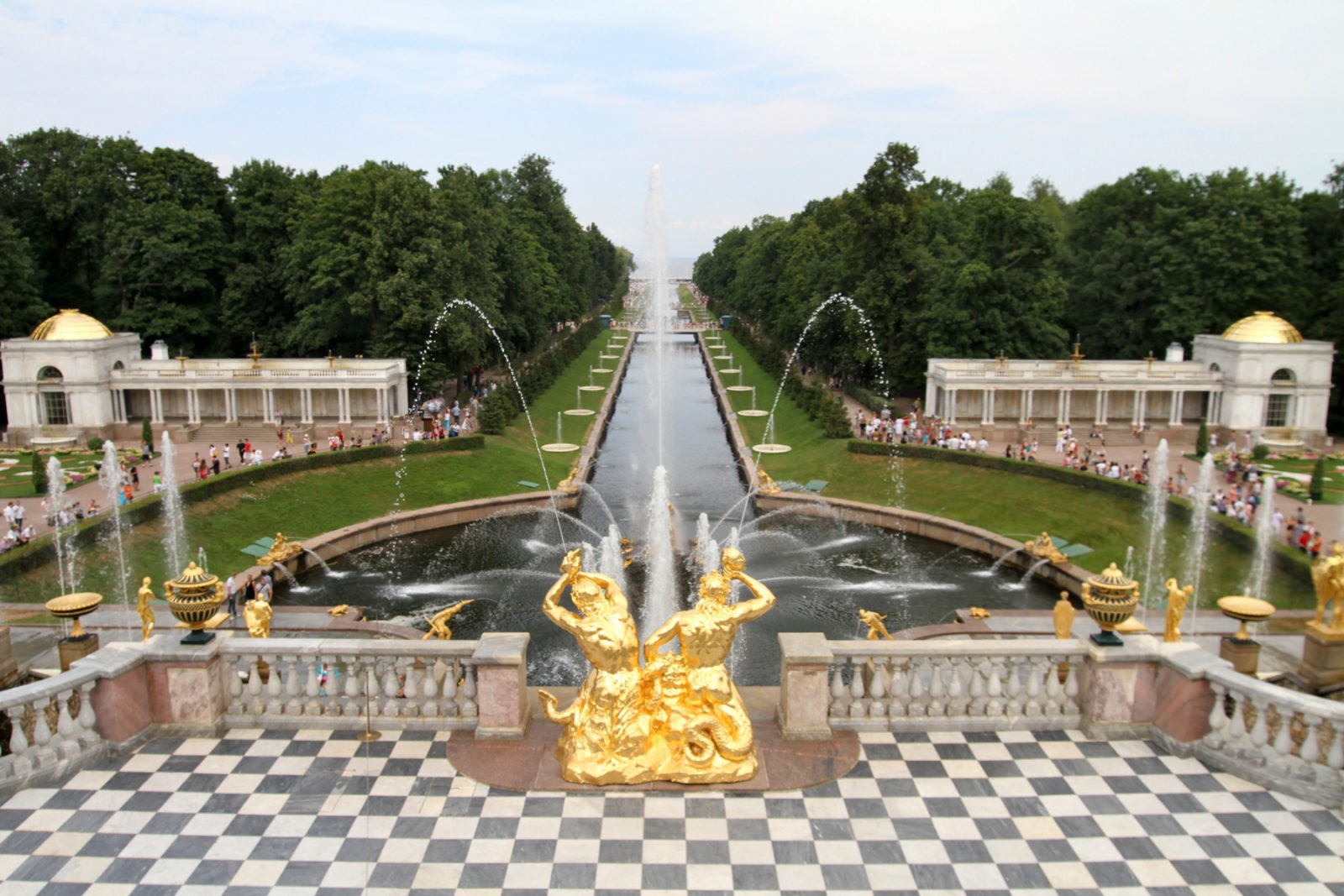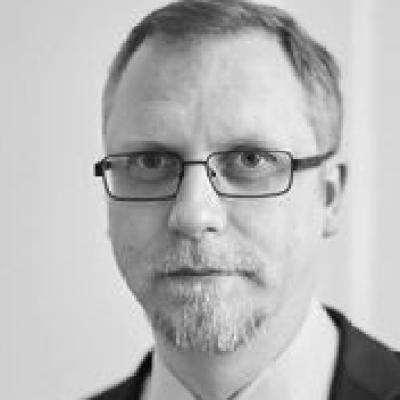In his manifesto published in the beginning of March 2019, French President Emmanuel Macron called for a renewal of the project of a united Europe based on the ideas of freedom, protection of the continent, and progress. Speaking about global competition, in which the EU is necessarily engaged as a global political and economic power, Macron stopped short of appealing to European nationalism as he wrote about the need of “the adoption of European preference [Macron’s emphasis] in strategic industries and our public procurement, as our American and Chinese competitors do”.
This phrase is also revealing in the sense that the US and China referred in it are the only non-EU countries mentioned in Macron’s manifesto, and this most likely provides insight into his understanding of the future power landcape: the US and China are the only real challenges to the EU; all other international problems are merely nuisances.
It is exactly through the perspective of a temporary nuisance that Macron alluded to Russia, when he wrote about protection of European election processes against “cyber attacks and manipulation”, and suggested banning “the funding of European political parties by foreign powers”. Against the background of the Russian cyber-attacks and disinformation against Macron during the 2017 presidential election campaign, as well as Macron’s major contender, far-right leader Marine Le Pen, obtaining financial assistance from Russia in 2014 and meeting with Vladimir Putin just a month before the first round of the election, Macron’s allusions were not that cryptic. For him, Russia was manifested as cyber-attacks, manipulation and foreign financial support for European parties. Not a global challenge like the US or China, but a headache that one can make go away with a painkiller, such as “a European Agency for the Protection of Democracies” that Macron suggested to create to thwart that type of nuisances.
This approach is justified but treating Russia exclusively as a nuisance is a case of political short-sightedness. The only reason why European liberals such as Macron are worried about cyber-attacks, disinformation and support for anti-establishment parties is because Moscow’s activities are seen as subverting the European unity and destabilising European nations through exploiting divisions and polarising societies around competing interpretations of European values. However, Russia is not creating those divisions and tensions; it is only taking advantage of the already existing cleavages and conflicts. In this role, Russia is not a nuisance by itself; rather, it is a catalyst.
In chemistry, a catalyst is a substance that increases the rate of a chemical reaction. As a catalyst, Russia exacerbates social divisions and tensions in Europe and its societies by spreading disinformation and providing support for political causes that are subversive by themselves. And Russia is well aware of its role as a catalyst for destabilising European societies: reversing the function, Moscow tends to blame the West for instigating social tensions in Russia, because the Kremlin knows exactly what it does to the West.
However, just like looking at Putin’s Russia as a simple nuisance, considering it as a catalyst only does not help us move forward in our understanding of a bigger picture. Referring to the Stanford economist Paul Romer who warned against wasting a crisis, I suggest looking at Russia’s catalysis of disruptive processes in Europe as a stress test that we can use to test the political, economic and social stability of Europe. It is exactly for this reason that dealing with the “Russian question” in Europe should focus not so much on debunking an infinite flow of Moscow’s disinformation as on identifying weaknesses of the European body politic that allow for some Russian active measures to be successful in Europe. This specific perspective is essential, because – going back to Macron’s manifesto – it is not Russia that is a real challenge to Europe.
Beijing calling
In September 2018, a leading British security-policy expert Edward Lucas argued that, “for all its geographical size and nuclear arsenal”, Putin’s “ramshackle empire [was] fundamentally weak”, and that “the real challenge to Europe’s rickety security [came] from a far more serious source: China”. Speaking on the margins of the World Economic Forum in Swiss Davos, philanthropist and investor George Soros voiced a similar view saying that China is the wealthiest, strongest and technologically most advanced authoritarian regime in the world, adding that China’s leader, Xi Jinping, is “the most dangerous opponent of those who believe in the concept of open society”. Soros mentioned the so-called “social credit system”, facial recognition, machine learning and artificial intelligence used by the Chinese authorities to crack down on the Chinese society and root out any dissenting views.
Chinese technological advances in establishing totalitarian control over people are indeed horrifying and go far beyond, as one observer put it, “anything George Orwell ever imagined”. Not only can China monitor millions of people in a live mode, identifying individuals, tracking them, connecting face recognition data to personal details such as travel and medical records, credit history, etc., Chinese technology can also predict people’s behaviour. And this uncomfortably trenches upon the dystopian world of Philip K. Dick’s “Minority Report” story – published in 1956 and popularised by Steven Spielberg in the eponymous film starring Tom Cruise in 2002 – in which the police “Precrime Division” arrests people for the crimes, which they have not committed but allegedly will have committed in the future as predicted by three mutated humans connected to a special machine.
But the totalitarian oppression in Xi’s China is not only futuristic – it is archaically atrocious too. Since 2014, China has been operating several concentration camps where it strives to “re-educate” a million of Uyghurs (a minority Turkic ethnic group) and Muslims from other ethnic communities with the aim of preventing extremism and terrorism. Muslim leaders across the world utterly failed to raise the issue of the concentration camps with China as they favour economic relations with the country. Tellingly, Saudi Arabia’s crown prince Mohammed bin Salman, who was linked by the UN to the assassination of Saudi journalist Jamal Khashoggi in 2018, even defended China’s “right to take anti-terrorism and de-extremism measures to safeguard national security” as he was signing multi-million trade deals with China. After Western nations issued a statement condemning the mass detention of Uyghurs and other minorities, Saudi Arabia, United Arab Emirates, Egypt, Qatar, Bahrain, Pakistan, Oman and 30 other nations issued their own statement that praised China for its “remarkable achievements in the field of human rights”. The same statement called concentration camps “vocational training centres”.
Not all Muslims will receive new skills in those “vocational training centres”: many of them – as well as Chinese prisoners of conscience – will likely become victims of forced organ harvesting. As the US investigative author Ethan Gutmann argued in his works, this was exactly the fate of dozens of thousands of practitioners of the Falun Gong religious movement who had their organs removed to provide for China’s lucrative transplant industry.
This is not simply China’s domestic infernality: the Chinese model of societal control, repression of dissent and absolute neglect of human rights for the sake of economic gain is exportable. China’s impunity for egregious violations of human rights, privacy and freedom of expression legitimises their disregard for many an authoritarian leader in the world. Just look at the list of countries that commended China for “promoting human rights through development”.
Add to the ominous aspects of today’s China its growing military might. Writing ten years ago, now late UCLA’s Professor John Friedmann predicted that “China’s growing economic power [would] inevitably convert into political and military power as well”. Since then, the country’s military spending has risen by 83% in real terms, and Xi hopes to make the Chinese army “world-class” by 2050. As The Economist explains, “world-class” implies the “America-beating” quality. But clearly traditional armament will be playing a much lesser role by mid-century. What can be conservatively expected is the total weaponization of artificial intelligence, big data and machine learning.
Russia and multipolarity: careful what you wish for
Friedmann also argued that the foreseeable future would be defined by the antagonism between the US and China, while the European Union and India will potentially be able to exercise constraint restraint on their competition. Such a situation implies the end of the unipolar world that has existed since the demise of the Soviet Union and collapse of the East European socialist bloc. Today, the emergence of multipolarity seems irreversible, and the only question is about the centres of global power and future balance of power between them. In his recent book The Levelling: What’s Next After Globalization, Michael O’Sullivan also speaks of four main poles that will shape the multipolar future: the US, China, Europe and, potentially, India. Although Russia “scores well on certain aspects of multipolarity (e.g., militarily)”, O’Sullivan argues, “in its current state it may never become a true pole”.
The expectations of the Russian leadership since the mid-1990s, as Anton Barbashin and Alexander Graef remind in their forthcoming report on Russian foreign policy, have always been different: “all versions of multipolarity discussed in Russia assumed that Russia would be one of those poles and would therefore retain its great-power status”. But now, when multipolarity is finally establishing itself, the emergent geopolitical landscape must be upsetting and hurtful for Russia. O’Sullivan writes that, for countries such as Japan or Australia that are “not wholly within one of the poles”, multipolarity triggers the crisis of identity, while for countries such as Russia the end of the unipolar world produces the crisis of ambition: Russia wants to become a pole but is not able to.
Yet the crisis of ambition necessarily leads to the crisis of identity too. This partly explains Russia’s behaviour on the international arena in the recent years: the annexation of Crimea and the war against Ukraine, selective interference in the electoral processes in the West, participation in the Syrian civil war under the guise of fighting terrorism, military adventures in Africa. All these endeavours can be interpreted as Russia’s imitation of what it believes the US is doing as a global power. However, Russia’s international adventures are more than just a practice of a cargo cult; rather, they are Russia’s search for its own identity. Moscow has invested so much – emotionally and psychologically – into the praise of multipolarity and behaving the way it thinks real poles should behave like that it can no longer develop its identity internally, drawing upon the well-spring of its culture. No, Russia is now trying to overcome its crisis of identity by shaping itself with the help of external reactions to its reckless international behaviour. Russia resembles a blind person who gains knowledge of their own body not by carefully examining themselves, but by chaotically kicking, punching and smashing everything around, while registering reactions and bodily sensations resulting from physical collisions with various external objects – it is these extreme, confusing and ultimately needless perceptions and sensations that form the blind person’s bizarre imagining of its own body.
As Moscow is erratically searching for its place in the emergent multipolar world, in which it will unlikely become a pole, it is falling into a trap, the name of which is Beijing. In the course of its conflict with the West, which deepened after the annexation of Crimea, Russia has moved closer to China, in which it sees not only a significant trade partner but also a potential ally in its struggle against the West. But it is true that Moscow remains wary of Beijing. Some in Russia still entertain a hope that the country will become one of the poles and are uncomfortable of becoming a “little sister” to the Chinese “big brother”. In his insightful article on the Russian-Chinese relations, Bruno Maçães, Portugal’s former Secretary of State for European Affairs, argued: “Russia wants to be an independent pole in the new global order. But being an independent pole in close association with China is simply not possible, given the assmmetry in economic power and size. Ergo Russia will be forced to keep some distance from its eastern neighbor”.
However, Russia will be unable to keep distance from China, as long as it is engaged in the strife with the West. Chances are high that the grim scenario suggested by Denis Sokolov, an expert of the Free Russia Foundation, is actually realistic: “Russia may not only lose political and economic control over most of its territories and resources but also turn into a giant proxy superpower armed with nuclear weapons [and acting] in the interests of China and the Chinese business”. In other words, China as a major pole in the multipolar can be strengthened by Russia – the latter will not even be a “little sister” in the “alliance” but just another department of Beijing’s official and clandestine economy. As Russia continues and intensifies its authoritarian experiment, tears down state institutions, destroys what is left of the civil society and wipes the floor with human rights, it intrinsically prepares itself for the role of China’s proxy.
Solving Russia’s crisis of identity
Is it in Europe’s interests that China, identified by the EU as an “economic competitor in the pursuit of technological leadership” and “a systemic rival promoting alternative models of governance”, will pose an even bigger challenge to Europe by economically integrating Russia in its centre of power? It seems that only a mad person would argue that this perspective benefited Europe. It is therefore essential to prevent such a development, and – instead of delivering Russia into the hands of Beijing – Europe needs to think how to strengthen itself by integrating Russia into its own centre of global power.
Discussing the West’s disproportionate pre-occupation with Moscow’s disruptive behaviour, Ivan Krastev explains this phenomenon by arguing that the West is obsessed with Russia because it sees in it a “double” that the West fears it can become. But the opposite is also true. Russia is trying to overcome its crisis of identity through external reactions to its recklessness, but its target audience, whose reactions Russia anticipates in order to help define itself, is neither China nor India – it is the West. By rejecting Europe, Russia is fighting with the uneasy realisation that it belongs to Europe.
While Europe cannot and should not help Russia solve its crisis of ambition in the context of the emergent multipolarity, Europe needs to offer Russia a solution to its crisis of identity. Europe needs to look at today’s Russia the way that advocates of a united Europe looked at Soviet-dominated Eastern Europe during the Cold War: a stray sheep that will one day return to the fold. And what is important, on the West’s conditions. “Eastern Europe is ours”, Western European idealists insisted then; “Russia is ours”, we should insist today.
To be sure, today’s retrogressive and revanchist Russia is no friend of Europe, and any attempt to establish a dialogue with the country’s current leadership will be interpreted as Europe’s weakness that will add even more confusing perceptions to Russia’s imagination of its own identity. There is virtually nobody among the Russian elites that Europe could rationally talk to, nobody with whom Europe could discuss the future. Hence, Europe needs to wait until the right moment and then commence Russia’s institutional inclusion into the West. In his truly visionary article on Western support for Russia’s democratisation, Andreas Umland asserts that the West needs to have a comprehensive plan of action for the moment when Russia is ready for “a renewal of the rapprochement with the West” – a plan that would in its spirit match the West’s approach to post-fascist Western Germany.
Waiting for the right moment does not imply doing nothing – on the contrary. Apart from developing a plan of integrating Russia into Europe’s centre of global power and communicating this plan to the Russian society, there are several ideas that the European leadership needs to consider.
While there is no point in talking to Russia’s insolent, paranoid and morally corrupt elites – anyway they will not represent Russia when the right moment for the start of Russia’s integration into the West comes along – European leaders and European citizens need to talk directly to the Russian people, especially Russia’s youth. This can be done through the activisation and expansion of academic exchange programmes; supporting the EU-based foundations and institutions that fund Russian citizens to study in Europe, as well as organisations that favour ties with Russian diasporas in the West; reinvigorating the existing and building new networks involving Russian participants; holding international and, especially, European sporting, cultural, entertainment and educational events in Russia; establishing and supporting European Russian language media.
Europe also needs to cautiously oppose China’s attempts to establish significant economic presence not only in the EU Member States, but also in non-EU European countries in Russia’s geographical and cultural neighbourhood. Countries such as Georgia, Ukraine and Moldova, which have suffered from Russia’s aggression since the demise of the Soviet Union, may see China’s presence as a counterbalance to Russia’s influence and/or substitute for the economic relations with Russia, but, again, it is China, rather than Russia, that poses a major challenge to Europe. The EU needs to explain to these countries that, if successful, Russia’ integration into the West will solve their security problems and obviate the geopolitical “grey zone” they currently find themselves in, while their entry into the Chinese sphere of influence will make them potential adversaries of Europe.
Yet building a Greater Europe will not only solve the dispiriting problem of the “grey zone” between the EU and Russia, but will also boost security of the European centre of power, help thwart the threat of Islamism, address the climate change issue in a more efficient way, and, eventually, consolidate Europe’s position vis-à-vis other poles of the emergent multipolar world.










